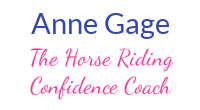On Oct 22-24, I attended the Balance in Motion Symposium at Kemptville College (University of Guelph). Dr. Gerd Heuschmann is an equine veterinarian and a master rider (Bereiter) trained by the German riding association. He has an expert understanding of equine bio-mechanics and how training effects the horse physically. In his vet clinic, he has seen the physical damage horses suffer when they are trained too quickly and through forceful techniques. He is passionately against the use of rolkeur in dressage training and use of mechanical gadgets (eg. draw reins, head setters, etc) in any discipline. I highly recommend every rider – regardless of training level and discipline – read Dr. Heuschmanns’s book, Tug of War: Classical versus Modern Dressage and watch his DVD, If Horses Could Speak
Dr. Hueschmann encourages a return to the more classical style of training which gives horses the time they need – physically and psychology – to develop the supple, strong muscles needed to carry a rider and perform the movements we ask of them without tension and stress that damages the body and the mind. Modern trainers and riders are too often focused on getting fast results so that the horse can be competitive in the show ring without considering the length of the horse’s career. When mechanical devices or other types of force are used to put the horse into a frame that focuses on head set or dramatic front end movement it causes long term damage to the muscles and joints. For the well being of the horse, training needs to return to the basics of balance and softness; taking the time necessary to allow the horse to develop.
Dr. Heuschmann referred to the Article 401 of the FEI – the Object and General Principles of Dressage – in which the number 1 principle is:
“… the development of the horse into a happy athlete through harmonious education . As a result it makes the horse supple , loose and flexible, but also confident, attentive and keen, thus achieving perfect understanding with his rider.”
Before World War II, when the cavalry was still an integral part of the armed forces, hacking cross country was a regular part of training particularly for young horses. Traveling across uneven ground, up and down hills, over small obstacles and on different types of footing allowed the horses to build their own balance while carrying a rider. How often do our modern show horses get ridden outside of the arena? If they get any turn out at all, very often, it is in a small, flat paddock where they have the least possibility of getting hurt. As animals that are naturally built to move, think how this confinement affects them psychologically as well as physically.
When the trainers and riders are focused on competition and awards (ribbon or point chasing), the physical and psychological well being of the horse is too often sacrificed. Short cuts are taken in training to meet show schedule goals. The horse becomes simply a tool for human enjoyment rather than a partner in creating harmony. If you are a competitive rider, would you ride and enjoy your horse even if you could no longer show or would you discard your horse for another – like a bike or a motorcycle?
In the partnership we create with our horses, we are the controlling partner. We decide what we do, when we do it and how it is done. The horse has no voice in the matter. If we truly care about horses, it is our responsibility as riders and trainers to consider their physical and psychological well being in everything we ask of them.

